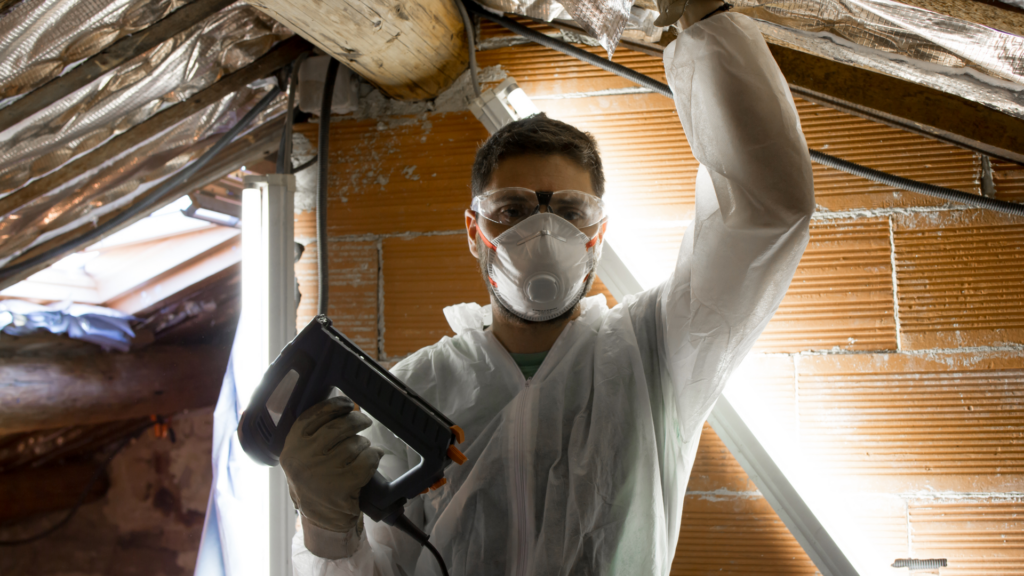
When it comes to maintaining a comfortable and energy-efficient home, insulation plays a pivotal role. Many homeowners overlook the importance of proper insulation, focusing on heating and cooling systems instead. However, insulation is the unsung hero that helps to maintain a consistent and comfortable temperature in your home without the need to run your heat or AC as often. This not only saves energy but also reduces your utility bills. In this blog, we will discuss the different types of insulation, their benefits, and how to improve your home’s insulation.
What is Insulation?
Insulation is a material that reduces the transfer of heat between two spaces. In the context of a home, it acts as a barrier to slow down the flow of heat between the interior and exterior of the building. The effectiveness of insulation is measured by its R-value, which indicates the material’s resistance to heat flow. The higher the R-value, the better the insulating properties of the material.
Types of Insulation:
There are several types of insulation materials available in the market, each with its unique properties and benefits. Some common types include:
- Fiberglass: Made from fine glass fibers, fiberglass is a popular and cost-effective insulation material. It is available in rolls or batts and is easy to install. Fiberglass is a good option for insulating walls, floors, and ceilings.
- Cellulose: Made from recycled paper products, cellulose is an eco-friendly insulation material. It is typically blown into wall cavities and attic spaces, providing excellent thermal and sound insulation.
- Spray Foam: This type of insulation is made from polyurethane or other chemicals and is applied as a liquid that expands into a solid foam. Spray foam provides a higher R-value than traditional insulation materials and effectively seals gaps and cracks.
- Rigid Foam Board: These boards are made from polystyrene, polyurethane, or polyisocyanurate. They offer a high R-value per inch and are often used for insulating basements, foundations, and exterior walls.
Benefits of Insulation:
Proper insulation offers several benefits to homeowners, including:
- Energy Efficiency: By slowing down the transfer of heat, insulation reduces the need to run your heating or cooling system as often, leading to lower energy consumption and decreased utility bills.
- Comfort: Insulation helps maintain a consistent temperature in your home, making it more comfortable throughout the year.
- Noise Reduction: Insulation materials, especially cellulose and spray foam, can help reduce noise transmission between rooms or from the outside.
- Moisture Control: Proper insulation can help control moisture in your home, preventing mold and mildew growth.
- Environmental Impact: By using less energy to heat or cool your home, you reduce your carbon footprint and contribute to a greener environment.
Improving Your Home's Insulation:
To maximize the benefits of insulation, it is essential to assess your home’s current insulation and determine if improvements are needed. Some tips to improve insulation include:
- Sealing Air Leaks: Ensure that windows, doors, and other openings are properly sealed to prevent drafts and improve insulation efficiency.
- Adding Insulation: If your home’s insulation is inadequate, consider adding more insulation material to areas like the attic, walls, or basement.
- Upgrading Insulation: If your insulation is old or damaged, upgrading to a higher R-value material can provide significant improvements in energy efficiency and comfort.
- Hiring a Professional: Consult with an insulation professional to assess your home’s insulation needs and provide expert advice on the best solutions for your situation.
Insulation is a crucial element in maintaining a comfortable and energy-efficient home. It acts as a barrier to reduce the transfer of heat between the interior and exterior of a building, helping to maintain a consistent temperature and reducing the need to rely heavily on heating and cooling systems. Insulation materials such as fiberglass, cellulose, spray foam, and rigid foam board offer unique properties and benefits. Proper insulation not only saves energy and reduces utility bills, but also improves comfort, reduces noise transmission, controls moisture, and has a positive environmental impact by reducing carbon footprint.
To optimize insulation, homeowners should assess their current insulation, seal air leaks, consider adding or upgrading insulation materials, and consult with insulation professionals for expert advice. Investing in proper insulation can significantly improve the comfort and energy efficiency of a home, making it a wise and beneficial decision for homeowners.
Contact us today to learn more about energy-saving incentives. The first step is to have a home energy assessment, which will cost you nothing at all.
